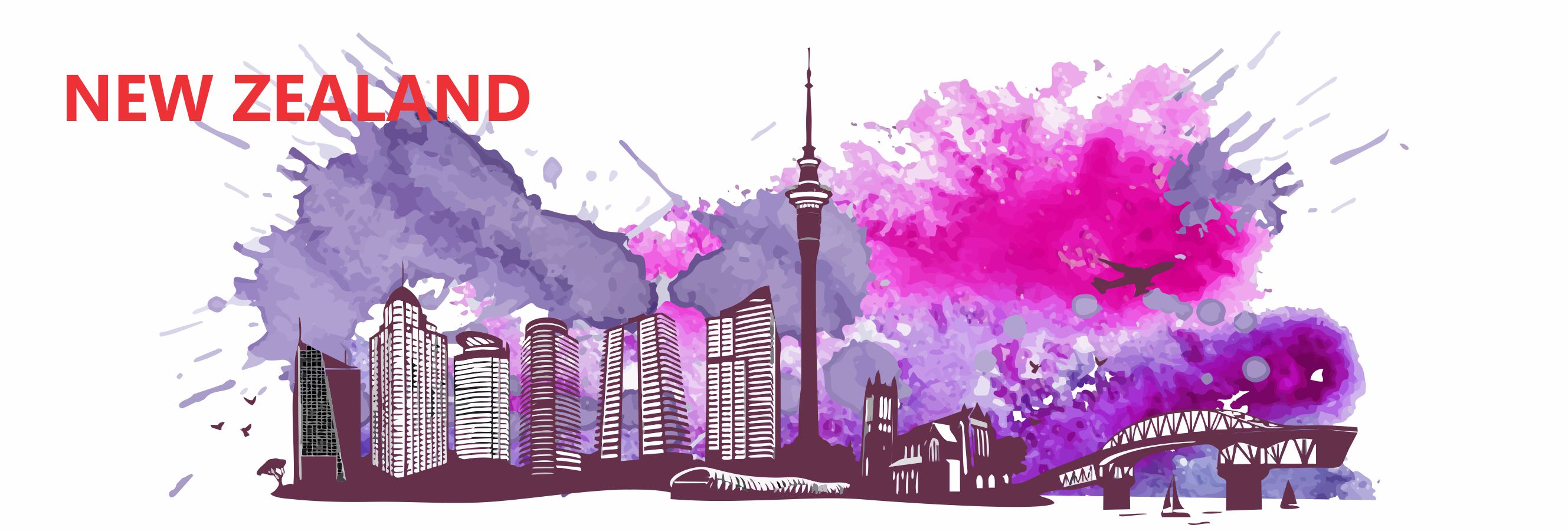
Study in New Zealand
From strong international rankings and world class facilities to expert faculty along with a rich pool of natural resources, New Zealand has proved itself to be the new and upcoming destination for educational opportunities. Education in New Zealand, apart from offering a very diverse range of study options for international students in world ranked universities, also offers affordable cost of education and living, factors that are playing a collective role in gradually making New Zealand one of the world leaders in higher education.
New Zealand is known for providing of quality education. Many New Zealand graduates have gone on to achieve international recognition in their field. Many of the international students from developing Asian nations, who have studies at New Zealand universities, have since served as senior administrators, including cabinet ministers in their own countries.
You can find there a safe learning environment with excellent study opportunities and support services for international students.
A wild variety of options is waiting for you to be discovered once you consider NZ as your study destination.
The students in New Zealand Universities are very international with students from all over the world studying and socializing. You can choose to study in the city with its shopping, restaurants, pubs and nightlife. Or if you prefer the slower pace, study in one of the more rural universities with its rural communities and farmland.
New Zealand as a fantastic place to study is offering:
The New Zealand tertiary education system is broadly divided into six sectors.
Universities
There are eight public universities in New Zealand, which offer undergraduate (bachelor) and postgraduate degrees. Universities are teaching and research-based. Five were listed in the 2013/2014 Times Higher Education World University Rankings.
Institutes of Technology and Polytechnics
New Zealand has 22 Institutes of Technology or Polytechnics.Courses are usually vocational and skills-based, ranging from certificate level through to bachelor degree and postgraduate level.
Private tertiary and training institutions
There are a growing number of private tertiary and training providers offering an alternative study option. They offer professional certificates, diplomas and degrees in a diverse range of subjects including the arts, hospitality, computer studies, quality management, ecotourism and others. More than 800 such establishments are registered with the New Zealand Qualifications Authority. About a quarter of these are M�ori owned and operated.
Teacher training
New Zealand is internationally recognised for its excellent education standards and for training high-quality teachers. There are six government-funded institutions that specialise in teacher training. Two operate within universities and the other four offer programs in collaboration with their local university. They offer training for teachers across early childhood, primary, secondary, special and tertiary (higher education) levels.
English language training sector
Private English language schools offer a variety of courses for all ages including adventure, business and academic programs. Adventure courses provide a balance of English language tuition and stimulating activity of students� choice. There are courses in English for business purposes and courses to help prepare students for IELTS testing. Most tertiary institutions also provide English language preparation for further study or foundation courses.
W�nanga
W�nanga is the term for the M�ori providers of tertiary education and advanced study on M�ori tradition and custom, usually in the M�ori language.
For more information on the education system in New Zealand visit the Study in New Zealand website.
Visa requirements
Your IDP Education counsellor will guide you through the application process for your New Zealand student visa.
To receive a student visa, you have to prove that you have enough money to pay for living expenses, education costs and travel for your entire stay in New Zealand.
For your student visa you may also require:
Employment prospects in New Zealand
Apart from the internships that the students can join while pursuing their educational courses in New Zealand, owing to the skill shortages across the various sectors in the New Zealand market, students with skills in demand and who wish to stay in New Zealand long term can apply for a Skilled Migrant visa, which will allow them to work and live in the country permanently. Graduates are in high demand in New Zealand, in particular in the health, information and communications technology, agriculture and farming, as well as the engineering industries.
Earn while you learn
An international education can be a strain on a student�s budget. In New Zealand, most students enrolled in a course of 12 months' duration or longer can work part-time for up to 20 hours a week during semester and during holiday periods.
This not only helps top up the bank balance, but also provides an excellent opportunity to integrate in the community and meet new people.
After graduation
With skill shortages across various sectors in the New Zealand labour market, graduates are in high demand in New Zealand. In particular, there is a strong demand for skilled workers in the health, information and communications technology, agriculture and farming, and engineering industries.
Students with skills in demand and who wish to stay in New Zealand long-term may apply for a Skilled Migrant visa, which will allow them to live and work in New Zealand permanently.